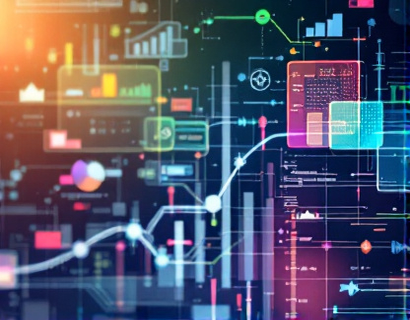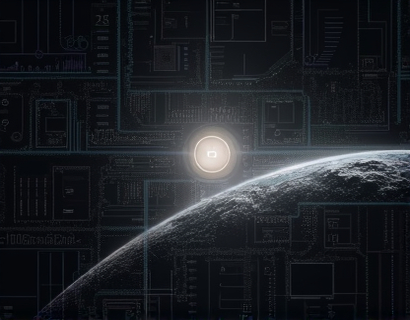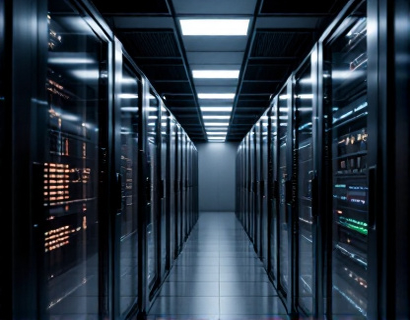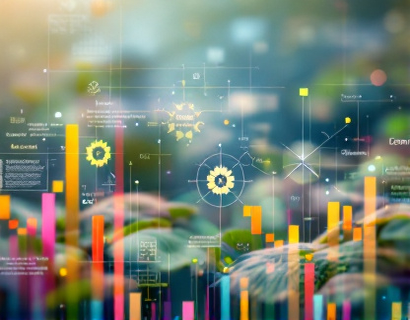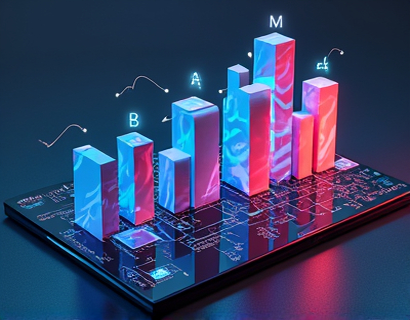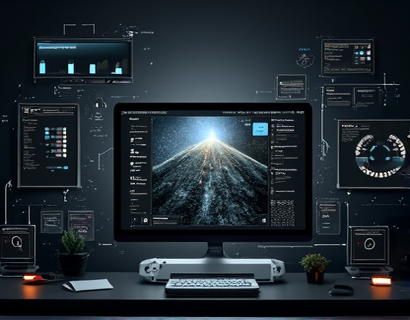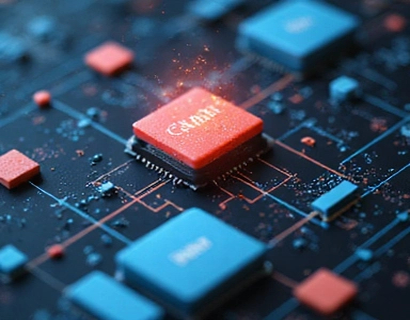Decentralized Productivity 4.0: Harnessing AI and Crypto for the Next Evolution of App Ecosystems
The digital landscape is undergoing a profound transformation, driven by the convergence of artificial intelligence (AI) and decentralized technologies. This evolution, often referred to as Decentralized Productivity 4.0, promises to redefine how we interact with digital tools and platforms, enhancing productivity and efficiency in unprecedented ways. By integrating AI and cryptocurrency, we can unlock seamless and efficient digital solutions that are not only more powerful but also more secure and user-friendly.
The traditional centralized model of app ecosystems has several limitations. Centralized systems rely on a single entity to manage and control the network, which can lead to bottlenecks, security vulnerabilities, and a lack of transparency. In contrast, decentralized systems distribute control across a network of nodes, eliminating single points of failure and enhancing security through cryptographic techniques. This decentralized approach, combined with the intelligence of AI, creates a robust framework for the next generation of app ecosystems.
Enhancing User Experience with Decentralized Technologies
One of the most significant advantages of decentralized productivity tools is the enhanced user experience they offer. In a decentralized system, users have greater control over their data and applications. This control translates to a more personalized and secure experience. For instance, users can manage their own identities and permissions, reducing the need for intermediaries and streamlining workflows.
Decentralized applications (dApps) leverage blockchain technology to ensure that data is immutable and transparent. This transparency builds trust among users, as they can verify the integrity of the data and the operations performed by the applications. Moreover, the decentralized nature of these apps means that they are less susceptible to censorship and downtime, ensuring continuous access to essential tools and services.
AI Integration in Decentralized App Ecosystems
The integration of AI into decentralized app ecosystems takes user experience to a whole new level. AI can analyze vast amounts of data to provide insights, automate repetitive tasks, and offer personalized recommendations. In a decentralized context, AI can operate independently on multiple nodes, ensuring that computations and data processing are distributed and efficient.
For example, AI-driven chatbots can be deployed on decentralized platforms to assist users with various tasks, from scheduling appointments to managing projects. These chatbots can learn from user interactions and adapt their responses over time, providing a more intuitive and efficient user experience. Additionally, AI can enhance the security of decentralized applications by detecting and mitigating potential threats in real-time.
Streamlining Workflows with Smart Contracts
Smart contracts are self-executing contracts with the terms of the agreement directly written into code. They play a crucial role in decentralized app ecosystems by automating and enforcing contractual obligations without the need for intermediaries. This automation not only speeds up processes but also reduces the risk of human error and fraud.
In the context of productivity tools, smart contracts can be used to manage workflows and task assignments. For instance, a smart contract can automatically trigger the next step in a project once a specific condition is met, such as the completion of a task or the receipt of payment. This ensures that workflows are seamless and that all parties involved are held accountable.
Security and Privacy in Decentralized Productivity
Security and privacy are paramount in any digital ecosystem, and decentralized productivity tools excel in this area. The use of blockchain technology ensures that data is encrypted and stored across multiple nodes, making it extremely difficult for malicious actors to compromise the system. Moreover, users have control over their data, deciding who can access it and under what conditions.
Cryptography plays a vital role in securing transactions and communications within decentralized app ecosystems. Advanced cryptographic techniques, such as public-private key pairs and zero-knowledge proofs, ensure that sensitive information remains confidential while still allowing for verification and authentication.
Economic Incentives and Tokenization
Decentralized app ecosystems often incorporate economic incentives through tokenization. Tokens can serve as a medium of exchange, a store of value, or a means of rewarding contributors. In the context of productivity tools, tokens can be used to incentivize users to participate in the network, such as by providing computational power for blockchain operations or contributing to the development and maintenance of dApps.
Tokenization also enables a more equitable distribution of value within the ecosystem. Instead of a centralized entity controlling the rewards, tokens can be distributed based on user contributions and engagement. This creates a more democratic and motivating environment, encouraging active participation and innovation.
Challenges and Considerations
While the potential of decentralized productivity 4.0 is immense, there are several challenges and considerations that need to be addressed. One of the primary challenges is scalability. Current blockchain technologies often struggle with high transaction speeds and significant energy consumption. However, ongoing research and development are addressing these issues, with new consensus mechanisms and layer 2 solutions emerging to improve performance and sustainability.
Another consideration is the user onboarding process. Decentralized technologies can be complex and intimidating for new users. Simplifying the user experience and providing intuitive interfaces are crucial for widespread adoption. Education and community support also play a vital role in helping users understand and effectively utilize decentralized productivity tools.
Future Prospects and Innovations
The future of decentralized productivity 4.0 is bright, with numerous innovations on the horizon. The integration of AI and blockchain is just the beginning, and we can expect to see more advanced applications of these technologies in app ecosystems. For instance, the combination of AI and decentralized autonomous organizations (DAOs) can lead to more intelligent and self-governing systems that adapt to changing conditions and user needs.
Furthermore, the development of cross-chain interoperability will enable seamless interaction between different blockchain networks, creating a more interconnected and efficient decentralized landscape. This interoperability will allow users to leverage the strengths of various platforms, enhancing the overall functionality and versatility of productivity tools.
Conclusion
Decentralized Productivity 4.0 represents a significant leap forward in the evolution of app ecosystems. By harnessing the power of AI and cryptocurrency, we can create digital solutions that are more secure, efficient, and user-centric. As these technologies continue to mature and integrate, we can expect to see a new era of productivity tools that transform the way we work and collaborate. Embracing this decentralized future is not just an option but a necessity for those looking to stay ahead in the rapidly evolving digital landscape.





